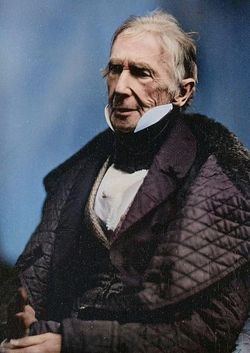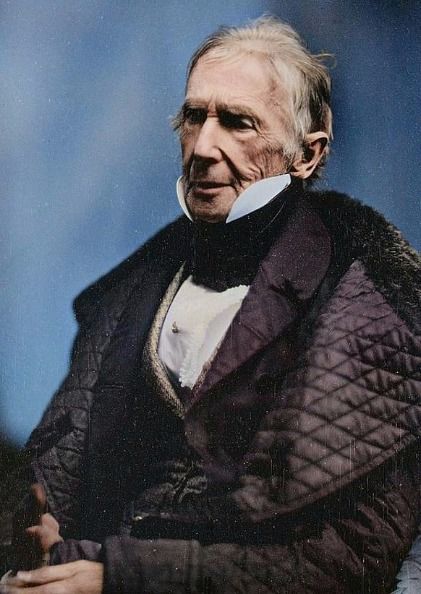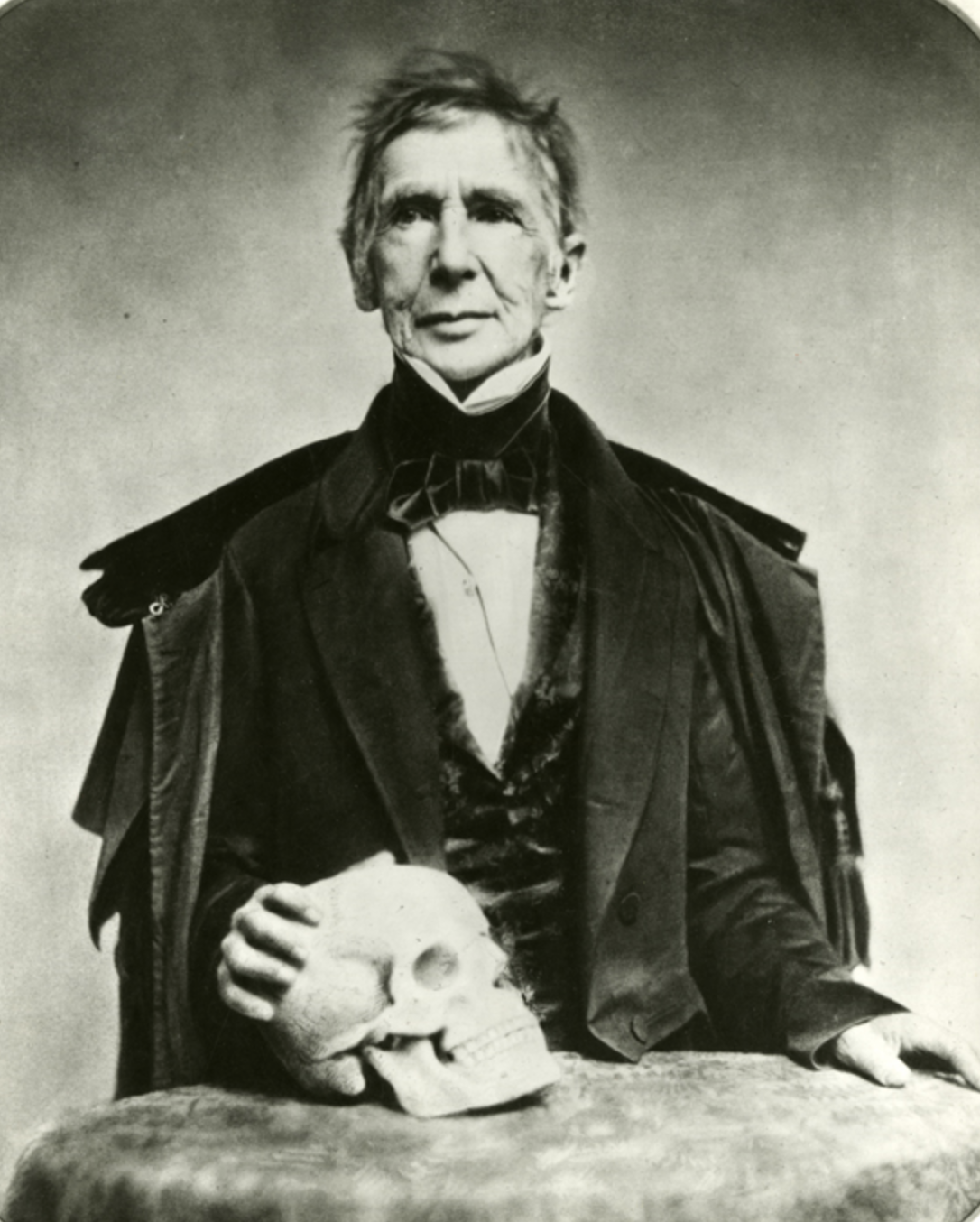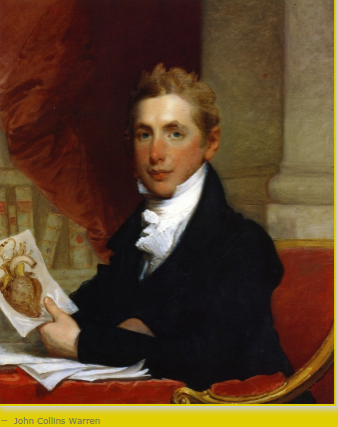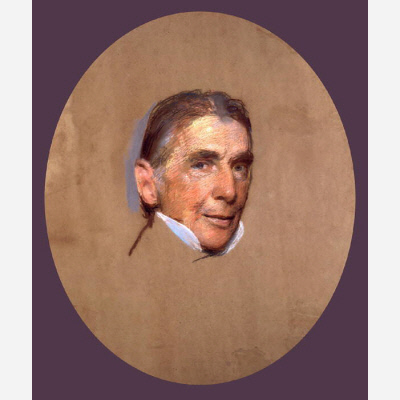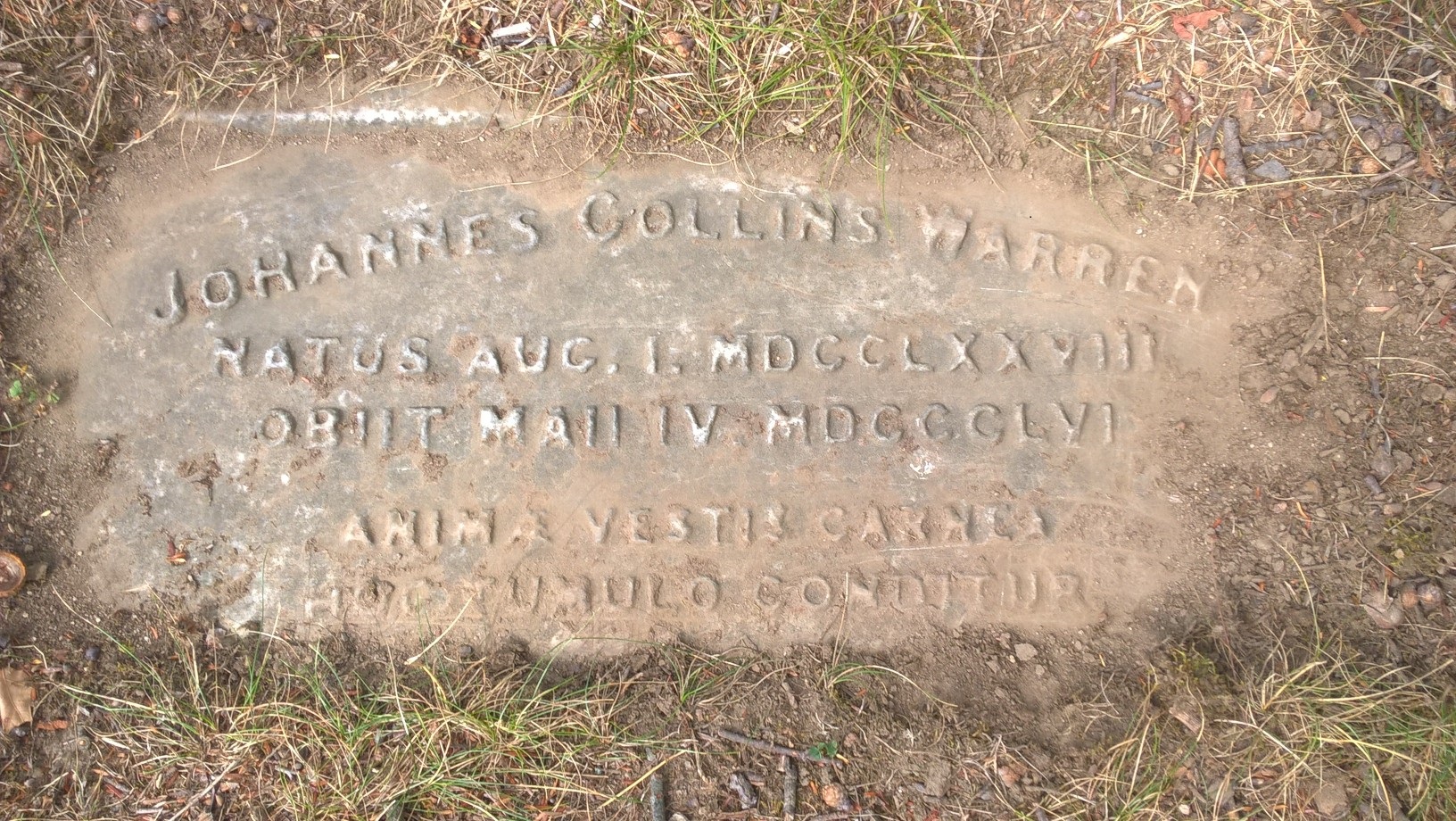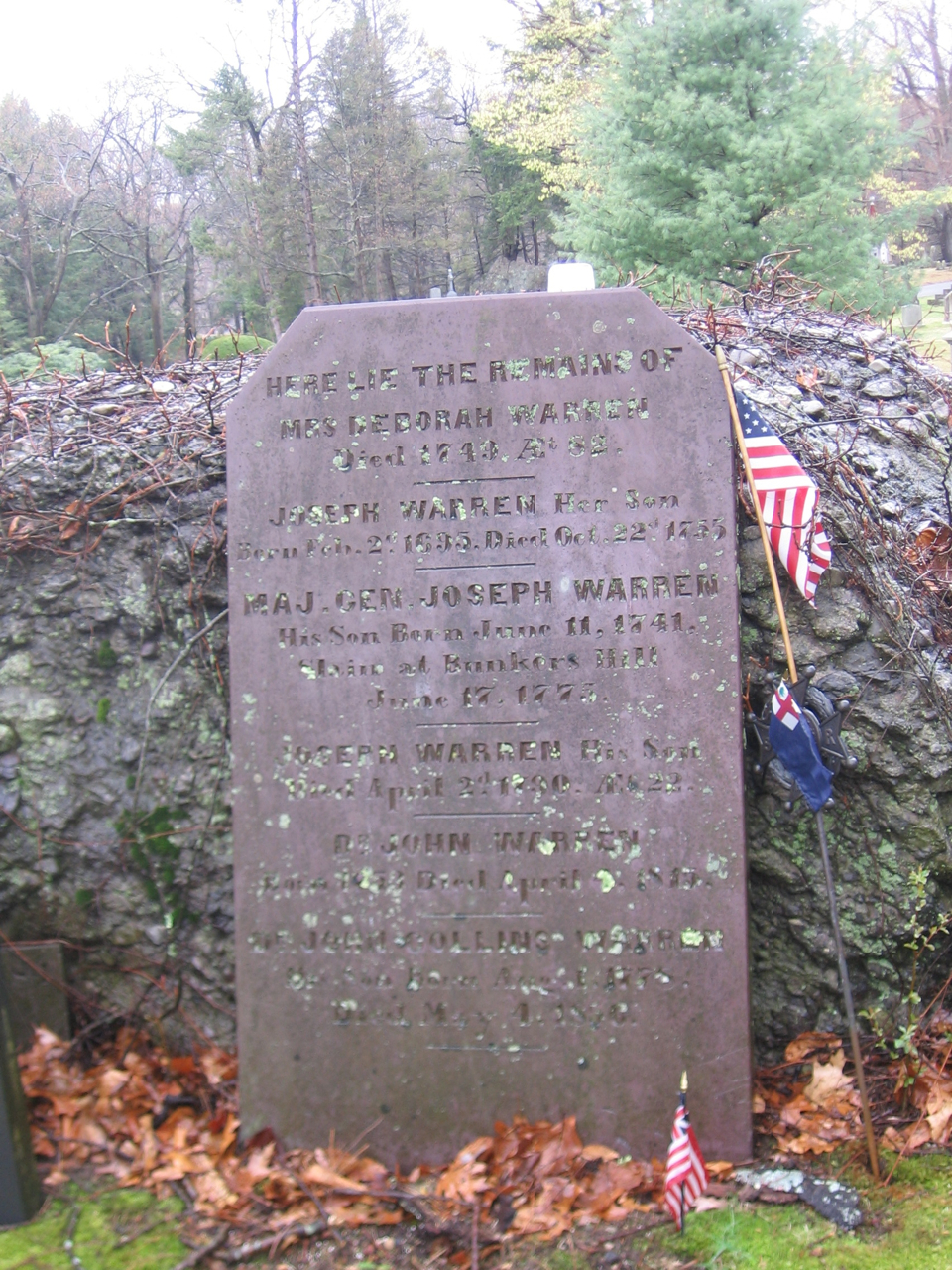Born in Boston, he was the son of John Warren, well-known doctor, Harvard professor, and a founder of the Harvard Medical School and the nephew of Dr. Joseph Warren. He graduated from Harvard College in 1797, then began the study of medicine with his father. In 1799, he continued his medical studies in London and Paris and Edinburgh, including work with the pioneer anatomist Sir Astley Cooper (1768–1841). He graduated with an M.D. from the University of Edinburgh Medical School in 1801. Upon his return to America in 1802, Warren entered into partnership with his father and also assisted him with anatomical lectures, dissections, and demonstrations at Harvard Medical School.
By 1806, Warren had begun performing cataract extractions for a condition which was most likely angle-closure glaucoma.
He was named Adjunct Professor of Anatomy and Surgery in 1806, then, at his father's death in 1815, assumed the Hersey Professorship of Anatomy and Surgery, which post he held until retirement in 1847. During this time, Warren played a leading role in establishing New England's first medical journal, The New England Journal of Medicine and Surgery (first issue January 1812), which subsequently evolved into today's New England Journal of Medicine. He was also active in the Anthology Club.
Warren was the first dean of Harvard Medical School (1816–1819) and promoted its move from Cambridge to Boston. Harvard presented him with an honorary medical degree in 1819. He was a founding member of Massachusetts General Hospital and served as the facility's first surgeon. He held an appointment on the hospital staff until 1853 and was then on its Board of Consultation until his death. Over the course of his long career, Warren assembled an extraordinary teaching collection of anatomical and pathological specimens, which he presented to Harvard in 1847 along with $5000. This was the beginning of the Warren Anatomical Museum.
Warren was involved not once but twice in the earliest history of anesthesia. The first incident was a failed demonstration of nitrous-oxide by dentist Horace Wells on January 20, 1845. Although Warren did not believe that the anesthesia would work, he arranged for a demonstration at Massachusetts General Hospital. Warren presented Wells to his students but the patient who had been scheduled that morning, for an amputation, refused to be operated on. Warren then asked his students if anybody needed a tooth extracted and one student agreed. Unfortunately the gas was not properly administered. The student suffered normal levels of pain, thus discrediting Wells and nitrous-oxide as an anesthetic.
Not willing to accept that failure, on October 16, 1846, Warren again agreed to perform a public demonstration of a surgical operation, with anesthesia, on a patient, this time under ether anesthesia administered by Wells' colleague and competitor, William T.G. Morton. Warren was, at this time, 68 years of age. The operation lasted about ten minutes and the patient was seemingly unconscious for its duration. After Warren had finished, and the patient had regained consciousness, Warren asked the patient how he felt. Reportedly, the patient answered: "Feels as if my neck's been scratched". Warren then stated to his audience "Gentlemen, this is no Humbug," although this proclamation is disputed. His personal journal for this day records, "Did an interesting operation at the Hospital this morning, while the patient was under the influence of Dr. Morton's preparation to prevent pain. The substance employed was sulphuric ether." Warren was quick to see the remarkable advantages offered by ether in surgical procedures, and he then championed the cause of etherization through his work and publications.
Mindful of the potential importance of the demonstration, Warren invited noted photographers Southworth & Hawes to document the surgery via a re-enactment. In subsequent months, they made a series of daguerrotypes of actual operations.
His first wife was Susan Powell Mason (1780–1840) whom he married 17 Nov 1803 at Boston and had six children: John Warren (b.1803-died young), Susan Powell Warren Lyman (1806–1856), Jonathan Mason Warren (1811–1867), James Sullivan Warren (1812–1867), Mary Collins Warren Dwight (1816-1900), and Emily Appleton (1818–1905).
He married his second wife, Anna Winthrop (1803–1850), in 1842.
Warren died from pericarditis on May 4, 1856, at his home at Park 2 street in Boston. It was believed for over 100 years that his remains laid in his memorial tomb at Forest Hills Cemetery in Jamaica Plain, MA but in fact his remains are divided; his skeleton is in a coffin-like box at Harvard's Warren Museum, since he donated his body to Harvard Medical School for research, and his so-called "morbid parts" [i.e. flesh] only were interred in the tomb.
(https://en.wikipedia.org/wiki/John_Collins_Warren)
Son of Dr. John Warren
Nephew of Dr. Joseph Warren
Harvard Class of 1797
Siblings of Dr. John Collins Warren [birth year recored in Collins family Bible (in private hands)]. Listed here are those who survived to adulthood.Total number of siblings: 16
Joseph Warren [husband of Abigail Whittier] 1780-1824
Mary Warren Gorham [wife of Dr. John Gorham] 1783-1839
Abigail Warren 1784-1844
Rebecca Warren Brown [wife of Dr. John Ball Brown] 1788-1855
Harriet Warren Prince [wife of Mr. John Prince] 1792-1859
Henry Warren 1795-?
Charles Warren 1797-1854
Edward Warren [husband of Caroline Rebecca Ware] 1804-1878
Born in Boston, he was the son of John Warren, well-known doctor, Harvard professor, and a founder of the Harvard Medical School and the nephew of Dr. Joseph Warren. He graduated from Harvard College in 1797, then began the study of medicine with his father. In 1799, he continued his medical studies in London and Paris and Edinburgh, including work with the pioneer anatomist Sir Astley Cooper (1768–1841). He graduated with an M.D. from the University of Edinburgh Medical School in 1801. Upon his return to America in 1802, Warren entered into partnership with his father and also assisted him with anatomical lectures, dissections, and demonstrations at Harvard Medical School.
By 1806, Warren had begun performing cataract extractions for a condition which was most likely angle-closure glaucoma.
He was named Adjunct Professor of Anatomy and Surgery in 1806, then, at his father's death in 1815, assumed the Hersey Professorship of Anatomy and Surgery, which post he held until retirement in 1847. During this time, Warren played a leading role in establishing New England's first medical journal, The New England Journal of Medicine and Surgery (first issue January 1812), which subsequently evolved into today's New England Journal of Medicine. He was also active in the Anthology Club.
Warren was the first dean of Harvard Medical School (1816–1819) and promoted its move from Cambridge to Boston. Harvard presented him with an honorary medical degree in 1819. He was a founding member of Massachusetts General Hospital and served as the facility's first surgeon. He held an appointment on the hospital staff until 1853 and was then on its Board of Consultation until his death. Over the course of his long career, Warren assembled an extraordinary teaching collection of anatomical and pathological specimens, which he presented to Harvard in 1847 along with $5000. This was the beginning of the Warren Anatomical Museum.
Warren was involved not once but twice in the earliest history of anesthesia. The first incident was a failed demonstration of nitrous-oxide by dentist Horace Wells on January 20, 1845. Although Warren did not believe that the anesthesia would work, he arranged for a demonstration at Massachusetts General Hospital. Warren presented Wells to his students but the patient who had been scheduled that morning, for an amputation, refused to be operated on. Warren then asked his students if anybody needed a tooth extracted and one student agreed. Unfortunately the gas was not properly administered. The student suffered normal levels of pain, thus discrediting Wells and nitrous-oxide as an anesthetic.
Not willing to accept that failure, on October 16, 1846, Warren again agreed to perform a public demonstration of a surgical operation, with anesthesia, on a patient, this time under ether anesthesia administered by Wells' colleague and competitor, William T.G. Morton. Warren was, at this time, 68 years of age. The operation lasted about ten minutes and the patient was seemingly unconscious for its duration. After Warren had finished, and the patient had regained consciousness, Warren asked the patient how he felt. Reportedly, the patient answered: "Feels as if my neck's been scratched". Warren then stated to his audience "Gentlemen, this is no Humbug," although this proclamation is disputed. His personal journal for this day records, "Did an interesting operation at the Hospital this morning, while the patient was under the influence of Dr. Morton's preparation to prevent pain. The substance employed was sulphuric ether." Warren was quick to see the remarkable advantages offered by ether in surgical procedures, and he then championed the cause of etherization through his work and publications.
Mindful of the potential importance of the demonstration, Warren invited noted photographers Southworth & Hawes to document the surgery via a re-enactment. In subsequent months, they made a series of daguerrotypes of actual operations.
His first wife was Susan Powell Mason (1780–1840) whom he married 17 Nov 1803 at Boston and had six children: John Warren (b.1803-died young), Susan Powell Warren Lyman (1806–1856), Jonathan Mason Warren (1811–1867), James Sullivan Warren (1812–1867), Mary Collins Warren Dwight (1816-1900), and Emily Appleton (1818–1905).
He married his second wife, Anna Winthrop (1803–1850), in 1842.
Warren died from pericarditis on May 4, 1856, at his home at Park 2 street in Boston. It was believed for over 100 years that his remains laid in his memorial tomb at Forest Hills Cemetery in Jamaica Plain, MA but in fact his remains are divided; his skeleton is in a coffin-like box at Harvard's Warren Museum, since he donated his body to Harvard Medical School for research, and his so-called "morbid parts" [i.e. flesh] only were interred in the tomb.
(https://en.wikipedia.org/wiki/John_Collins_Warren)
Son of Dr. John Warren
Nephew of Dr. Joseph Warren
Harvard Class of 1797
Siblings of Dr. John Collins Warren [birth year recored in Collins family Bible (in private hands)]. Listed here are those who survived to adulthood.Total number of siblings: 16
Joseph Warren [husband of Abigail Whittier] 1780-1824
Mary Warren Gorham [wife of Dr. John Gorham] 1783-1839
Abigail Warren 1784-1844
Rebecca Warren Brown [wife of Dr. John Ball Brown] 1788-1855
Harriet Warren Prince [wife of Mr. John Prince] 1792-1859
Henry Warren 1795-?
Charles Warren 1797-1854
Edward Warren [husband of Caroline Rebecca Ware] 1804-1878
